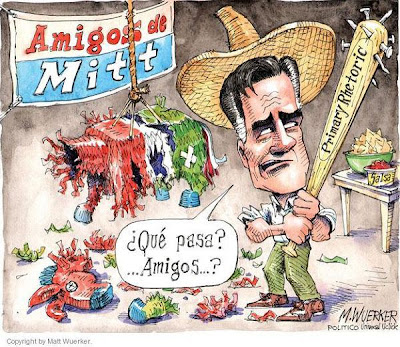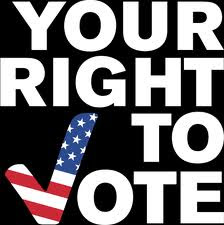A week after signing an executive order that bars the deportation of young illegal immigrants who came to the U.S. before they were 16 and have graduated from high school, President Obama today made a direct appeal to the National Association of Latino Elected and Appointed Officials conference in Orlando, Florida.
Obama addressed the conference of Latino officials, just a day after the Republican presidential candidate, Mitt Romney, addressed the conference. Without mentioning Romney by name, the President drew a sharp distinction with his challenger on immigration, reminding the crowd of Romney’s opposition to the DREAM Act, the legislation derailed by Congressional Republicans that is intended to put many illegal immigrant students and veterans on a path to citizenship:
"Your speaker from yesterday has a different view. In his speech, he said that when he makes a promise to you, he’ll keep it. Well, he has promised to veto the DREAM Act, and we should take him at his word. I'm just saying."
Pres. Obama speaking at the NALEO
Annual Conference
June 22, 2012
Asked by pollsters, Latino voters overwhelmingly support Pres. Obama. So much so, in fact, that if Republicans can't pull some of that support back to their own party, Mitt Romney's chances of winning in November are close to zero.
Republicans' callous and deeply unpopular rhetoric against Latinos has created a serious rift between Latino Americans and the GOP.
This has the potential to be a serious problem for Romney and other Republicans on the Texas ballot this November given the staggering statistic that Hispanics now account for 38 percent of the Texas population -- and nearly 4 million Texas Latinos can vote.
This is probably why Texas Republicans are desperate to have their voter photo I.D. law in effect for the November 2012 Presidential Election. Up to 40 percent of Latino American citizens already registered to vote in some Texas counties do not have one of the limited selection of government issued photo I.D.'s needed to vote under this law. As I personally heard so many Republican voters comment when they checked-in to vote early for the Texas Primary last month, "we need that voter photo I.D. law enforced to keep the wrong people from voting."
Still, Texas Latinos historically have been apathetic about voting. The percentage of Latinos who vote has actually dropped over the past eight years. In 2004, roughly 42 percent of Latinos went to the polls, but that number dropped to 38 percent in 2008, falling to 22 percent in the 2010 election.
The newly elected Texas Democratic Party Chairman, Gilberto Hinojosa, says that the flaw in the party’s strategy over the last several years has been its focus on so-called independent voters, when Democrats should be courting the state’s sleeping Latino demographic giant.
“It doesn’t take a rocket scientist to figure out that Hispanic turnout is where we’re getting beat,” Hinojosa says. “Anything you want to look at with regards to the Democratic Party, it comes down to that. We’ve got African-Americans, the LGBT community, Asians, women. The one that’s under-performing in greatest numbers and the one that makes up the greatest number of potential voters is the Hispanic community.”
Texas Democrats could learn, Hinojosa says, from California, Nevada and Colorado Democrats' successes in turning out Latino voters in the 2010 election.
In a year in which the Tea Party was killing everyone else, all three states had big Democratic wins due to Latino support. “Nevada spent a lot of money, but they had a focused strategy, and Harry Reid won because of the large Latino voter turnout.”
California has a similar Latino voting population to Texas, but it consistently turns out higher numbers at the polls. Census Bureau figures show that in California, nearly 60 percent of eligible Latinos turn out to vote. The national average is about 50 percent.
 The Texas Democratic Party has already started Hispanic outreach programs, like the Promesa Project, that uses a combination of online and grassroots techniques to recruit young Latinos as the party’s messengers to their families, and social networks to get out the Latino vote this November.
The Texas Democratic Party has already started Hispanic outreach programs, like the Promesa Project, that uses a combination of online and grassroots techniques to recruit young Latinos as the party’s messengers to their families, and social networks to get out the Latino vote this November.
Will the Texas Democratic Party's new Latino outreach emphasis pushed by Hinojosa, combined with Latino voters' overwhelming support of Pres. Obama, on top of Latino antipathy for the GOP boost Latino voter turnout back to 42 percent, or more, of that demographic group? We will find out on Election Day, November 6.
 Ask Texas Senate District 8 candidate Jack Ternan your questions by posting on Jack’s Facebook wall (facebook.com/jackternan) or tweet Jack @ternanforsenate with hashtag #askJack. Thursday, July 19, 8PM-9PM
Ask Texas Senate District 8 candidate Jack Ternan your questions by posting on Jack’s Facebook wall (facebook.com/jackternan) or tweet Jack @ternanforsenate with hashtag #askJack. Thursday, July 19, 8PM-9PM 

















